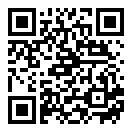Pages:
105-128
Receive Date: 2026/02/14
Accept Date: 2026/02/14
Abstract:
Conventional neoclassical economics is based on a utilitarian conception of morality and rationality in the sense of maximizing utility. The present paper, reviewing the results of the discussion about the two concepts of morality and rationality in conventional economics, proposes the hypothesis that this approach is ascribed to neglecting institutional dimensions of economy using an analytical method. The research findings show that reducing morality to selfishness and rationality to logical accounting are behind the negligence of institutional dimensions of economics, which caused neoclassical economics fail to explain the social order resulting from economic action. This problem can be solved by providing a more comprehensive definition of morality and rationality linked up with social order. To this end, there is a need for social morality which manifests itself in the form of values and norms and in a kind of institutional structure which has priority over personal morality governing the society. When social order is introduced to economics the relationship between economics and social order can be set forth, but then a new problem relating to the criterion of selecting a basis for social morality will arise. This problem represents a fundamental challenge to all economic schools including Islamic Economies.
چکیده و کلیدواژه فارسی (Persian)
Title :اخلاق، عقلانیت و مسئلهی نظم در علم اقتصاد
Abstract:
علم اقتصاد نئوکلاسیکی متعارف بر مبنای برداشت مطلوبیت گرایانه از اخلاق و عقلانیت، بر مفهوم «حداکثر سازی مطلوبیت» بنا شده است. مقالهی حاضر ضمن بررسی نتایج طرح این دو مفهوم از اخلاق و عقلانیت در علم اقتصاد متعارف، این فرضیه را مطرح می کند که این رویکرد موجب غفلت از ابعاد نهادی اقتصاد شده است. یافته های تحقیق، که به روش «تحلیلی» سامان یافته است، نشان می دهد تقلیل اخلاق به خودخواهی، و عقلانیت به حسابگری منطقی موجب غفلت از ابعاد نهادی علم اقتصاد، و در نتیجه، ناکامی اقتصاد نئوکلاسیکی در تبیین نظم اجتماعی حاصل از کنش اقتصادی شده است. حل این مشکل با ارائهی تعریفی فراگیرتر از اخلاق و عقلانیت در پیوند با نظم اجتماعی امکان پذیر است. برای این کار، نیازمند یک اخلاق اجتماعی هستیم که خود را به شکل ارزش ها و هنجارها در یک ساختار نهادی نشان می دهد و مقدم بر اخلاق فردی در جامعه وجود دارد. با ورود اخلاق اجتماعی به علم اقتصاد، مسئلهی رابطهی علم اقتصاد و نظم اجتماعی مطرح می شود، ولی مسئلهی جدیدی بروز می کند که مربوط به معیاری برای انتخاب مبنا در اخلاق اجتماعی است. این مسئله یک چالش بنیادی رودرروی هر مکتب اقتصادی، از جمله اقتصاد اسلامی است.
References:
- ايمان، محمدتقي و احمد کلاته ساداتي،1392، روششناسي علوم انساني نزد انديشمندان مسلمان، قم، پزوهشگاه حوزه و دانشگاه.
- ميرمعزي، سيدحسين، ۱۳۸۰، «اسلام و نظام اقتصادي»، اقتصاد اسلامي، ش۳، ص91-108.
- ـــــ ، ۱۳۸5، «نقد و بررسي ديدگاه شهيد صدر درباره هويت اقتصاد اسلامي»، اقتصاد اسلامي، ش22، ص123-146.
- موسويان، سيدعباس، ١٣٨١، «دين و اقتصاد»، اقتصاد اسلامي، ش٨، ص37-60.
- منذر قحف، 1385، «مروري بر الگوهاي اقتصاد اسلامي»، ترجمة سيدحسين ميرمعزي، اقتصاد اسلامي، ش21، ص157-188.
- نصر، سيدحسين، 1374، جوان مسلمان و دنياي متجدد، ترجمة مرتضي اسعدي، چ دوم، تهران، طرح نو.
- نجارزاده و ديگران، 1387، «شكلگيري نظامهاي اقتصادي بر مبناي اخلاق اسلامي و اخلاق سرمايهداري»، جستارهاي اقتصادي، ش۱۰، ص۷-۳۷.
- يوسفي، احدعلي، ۱۳۸5، «ابهام در اهداف نظام اقتصادي اسلام و ساماندهي آن»، اقتصاد اسلامي، ش23، ص101-126.
- Cooper, John M, (ed.), 1997, Plato: Complete Works, Indianapolis: Hackett.
- Arrow, K.J, 1951, Social Choice and Individual Values, New York.
- Hobbes, T, 1651, leviathan ,oxford.
- Bentham, J, 1789, Introduction to the Principles of Morals and Legislation, Oxford.
- Locke, J, 1689, Second Treatise of Governmen, Oxford.
- Hume, D, 1739, Treatise of Human Nature, Book III, part I, Oxford.
- Kant, I, 1949, Critique of Pracitical Reason, Chicago.
- Mandeville, Bernard, 1924 [1729], The Fable of the Bees,. New York, Oxford University Press.
- Shields, C, 2008 ,The Oxford Handbook on Aristotle, Oxford: Oxford University Press
- Smith, A, 1776, An Inquiry into the Nature and Causes of the Wealth of Nations, Glasgow edition, Oxford.
Cite this article:
RIS
Mendeley
BibTeX
APA
MLA
HARVARD
VANCOUVER
APA | MLA | HARVARD | VANCOUVER
moarefi, abdolhamid.(2026) orality, Rationality and the Problem of Order in Economics. Ma`rifat-e Eghtesad-e Islami, 5(1), 105-128
APA | MLA | HARVARD | VANCOUVER
abdolhamid moarefi."orality, Rationality and the Problem of Order in Economics". Ma`rifat-e Eghtesad-e Islami, 5, 1, 2026, 105-128
APA | MLA | HARVARD | VANCOUVER
moarefi, A.(2026) 'orality, Rationality and the Problem of Order in Economics', Ma`rifat-e Eghtesad-e Islami, 5(1), pp. 105-128
APA | MLA | HARVARD | VANCOUVER
moarefi, A. orality, Rationality and the Problem of Order in Economics. Ma`rifat-e Eghtesad-e Islami, 2026; 5(1): 105-128
 / Assistant professor of economics department, Isfahan University / A.h.mohammadi@ase.ui.ac.ir
/ Assistant professor of economics department, Isfahan University / A.h.mohammadi@ase.ui.ac.ir



